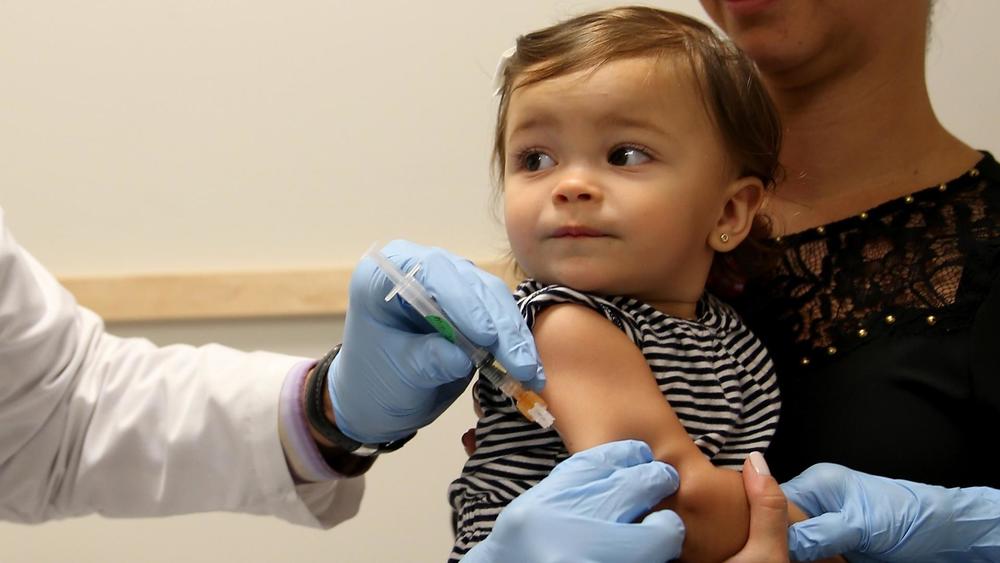
Caption
A child receives a vaccine to prevent measles. A measles case has been detected in an unvaccinated metro Atlanta resident amid a nationwide outbreak of the disease.

A child receives a vaccine to prevent measles. A measles case has been detected in an unvaccinated metro Atlanta resident amid a nationwide outbreak of the disease.
The Georgia Department of Public Health (DPH) has confirmed a measles case in an unvaccinated Greater Atlanta resident who acquired the virus while traveling internationally.
DPH is working to identify any persons who may have been exposed through contact with the individual between May 10 and May 18, when they were infectious.
Measles is very contagious and spreads through the air when an infected person coughs or sneezes. The measles virus can stay in the air or on surfaces for up to two hours after an infected person has left the room.
Measles symptoms appear 7 to 14 days after contact with the virus, typically including high fever, cough, runny nose and watery eyes. Then, a rash of tiny, red spots breaks out. It starts at the head and spreads to the rest of the body.
This is the fourth reported measles case in Georgia in 2025, and the 10th case since 2024.
The MMR (measles, mumps, rubella) vaccine is safe and effective at preventing measles and rubella, according to the Centers for Disease Control and Prevention.
If young people do not receive their immunizations on time, we could see cases of measles and even whooping cough reemerge, said Dr. Christy Peterson with Atrium Health Navicent in Macon in 2021 after a noticeable drop in childhood vaccinations.
The time to vaccinate children is before we see them get sick, she said.
“We don't see these devastating, terrible diseases anymore because the vaccines are so effective," she said. "And so people get relaxed and they forget. They just think, ‘It's fine; I'll let everybody else get vaccinated.'"
DPH epidemiologist Dr. Cherie Drenzek said the cause of a 2019 outbreak was an unvaccinated family whose measles cases were not reported to the state. Five previously unreported cases of measles were discovered in one Cobb County family that October.
Health officials identified 50 people who were possibly exposed during the 2019 outbreak and susceptible to infection. Many were infants too young to vaccinate, but others were older.
“They may have been adults who were unvaccinated or kids that were unvaccinated, that weren't infants or they were immunocompromised individuals,” Drenzek said.
In Georgia, about 90.7% of children receive an MMR vaccination before 35 months of age, according to the American Academy of Pediatrics.
Georgia had 18 cases of measles in 2019, more than double the number the state had seen over the previous decade.
Children receive their first dose of MMR vaccine between 12 and 15 months of age and a second dose between 4 and 6 years old.
More than 95% of the people who receive a single dose of MMR will develop immunity to all three viruses, DPH said in its news release. A second dose boosts immunity, typically enhancing protection to 98%.
People with symptoms of measles should contact their health care provider immediately but not visit the doctor’s office, the hospital, or a public health clinic without first calling to let them know about your symptoms, the agency said.
Health care providers who suspect measles in a patient should notify public health immediately.
Georgia Health Initiative is a non-partisan, private foundation advancing innovative ideas to help improve the health of Georgians. Learn more at georgiahealthinitiative.org